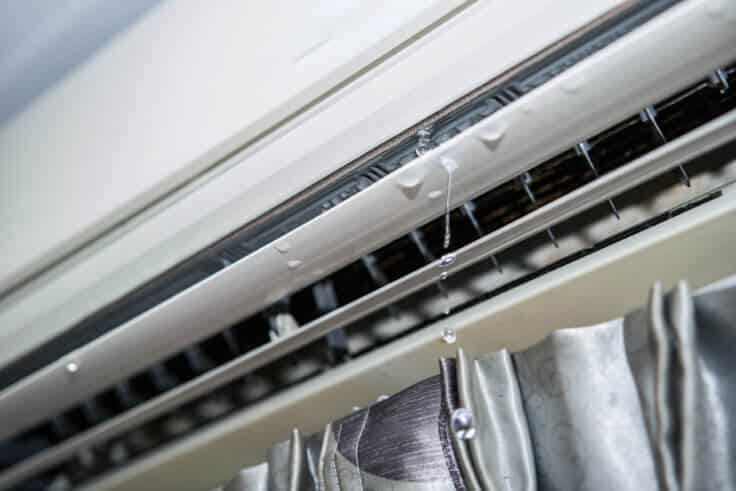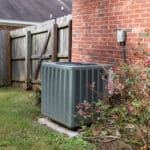
Why Is My Ac Unit Leaking Water
Although August is considered the latter part of the summer, the heat is often unrelenting as the daily temperature high still averages in the upper 80s and 90s. No doubt, after a Georgia summer, your HVAC unit has had to work hard all summer long to keep your family comfortable. Its job is not done, though. If you see a puddle of water under your unit or coming from the ceiling, you need to address it right away to minimize the damage. Our team at Parker’s Heating and Air is standing by to help locate your leak and resolve it swiftly. We want to help you understand why leaks occur and what you can do when you discover one.
Why is there a leak?
When an air conditioner leaks water, there is a problem somewhere in the cooling cycle. AC units do not actually “cool” your air, but they do remove the heat from your air by sending it outside. In fact, your return vent captures the humid air and blows it over an evaporator coil. The evaporator coil’s job is to absorb the heat with its refrigerant and turn it into a gas. The cool air is then blown back into your home, creating a comfortable temperature. The converted hot gas is transferred to your outdoor condenser and compressor. The hot gas is released and then the refrigerant can become a liquid again. The refrigerant is recycled and returned back to your evaporator coil to repeat the process again. This process does allow for some dripping under your air conditioner, but there should not be an excess that causes a leak. The evaporator coil has a drain pan underneath it that is designed to retain any moisture collected from the humid air conversion process. Any water in the pan is drained through the drain line outside. Some drain pans are equipped with a pan switch or the E-Z trap to shut off the unit if too much water has accumulated in the pan or your drain line. Shutoff switches do not come standard with installations, so you probably do not have one without asking specifically for it. If you are interested in adding one to your unit, we are happy to help. Shutoff switches really do help prevent damage to your home from too much moisture accumulation.
How to Spot a Leaking HVAC
Do you know how to spot an HVAc leak? These signs could help you spot one quickly:
- Smell of mold or mildew
- Dripping water down your walls or from your ceiling
- Water pooling underneath your unit
If you see any of these signs, shut off your unit and give us a call immediately.
Typical Causes of Leaks
- Drain Pan Damage–Your drain pan could be made from stainless steel, polymer, or galvanized steel. Each material has a different lifespan, but they all eventually can rust or corrode. A rusted or corroded pan can easily cause a leak. Drain pans are not designed for patching or DIY repairs, so give us a call if you suspect you have a damaged drain pan.
- Drain Line Clog–Your drain line plays an important role in the cooling process as it drains the water collected in the drain pan. A leak can occur when you have a clog somewhere in your drain line. If your air filters are old, damaged, or poor quality, you can end up with a clog in your drain line. Regularly changing your air filter will help prevent a clogged up drain line. Air filters should be checked monthly and changed at least every three months. The final reason a drain could be clogged is algae buildup in your pan or drain line.
- Condensate Pump Failure–Some homes do not have the help of gravity to drain the water in their unit. These units depend on a condensate pump to remove the water from the drain pan. If the pump fails, an overflowing pan is inevitable.
- Evaporator Coil Freeze–There are two common reasons for a frozen evaporator coil–an airflow reduction or refrigerant leak. Warm air has to pass over the coils and convert the refrigerant to gas or the refrigerant will freeze on the coils. If the air flow is restricted, the reduced air flow could be due to a blocked vent, failing fan, dirty coil, dirty air filter, or an air duct collapse. When refrigerant leaks, any liquid remaining in the coil expands and causes a temperature reduction, ultimately leading to a frozen coil.
What You Should Do When You Spot a Leak
There is no need to panic if you have a leak. Simply, shut off your HVAC unit. Next, dry the leak to limit damage and call Parker’s Heating and Air for help. We are ready and experienced to help with your air conditioning needs!



